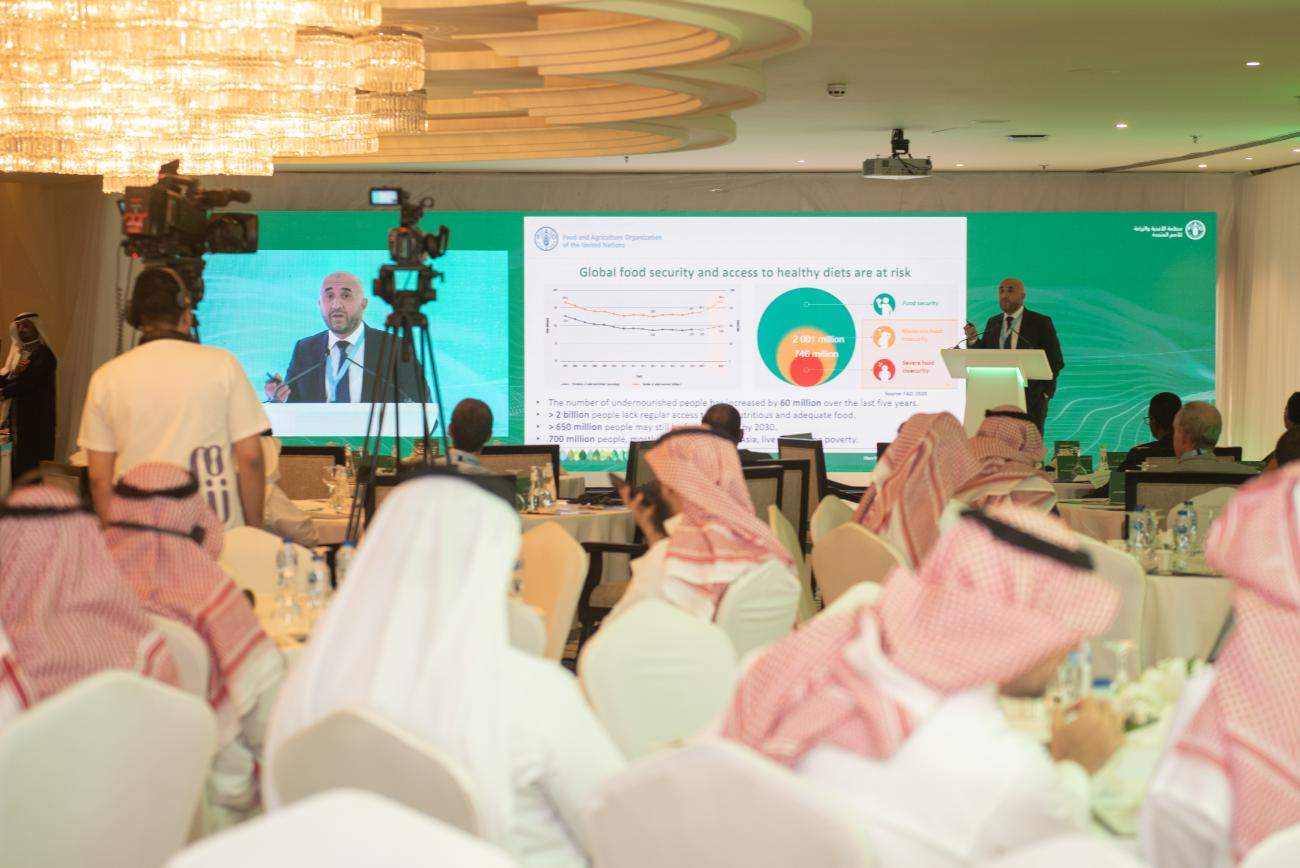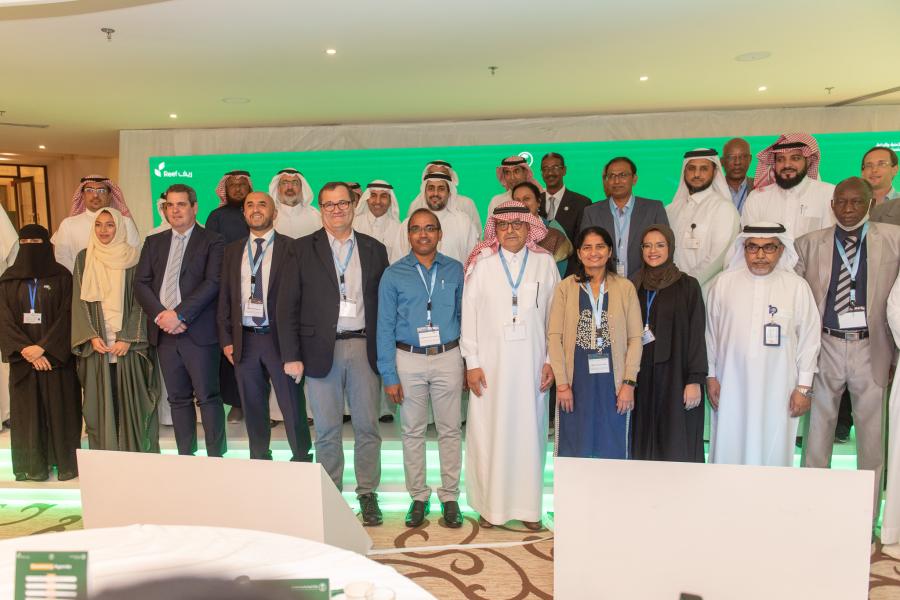Strengthening Rainfed Cereal Production in Saudi Arabia

The SRAD project organized the first ‘’National Workshop on Rainfed Cereals Production for Food Security and Sustainable Rural Development” recently in Riyadh.
Rainfed cereals mainly sorghum and millet are widely recognised as smart crops for drought tolerance, climate adaptability, and high nutritional values and cultivated mainly in dryland regions of the world.
In the Kingdom of Saudi Arabia, sorghum, millet and sesame are grown in over 70,000 ha mainly in the southwestern region mainly by small scale farmers and can be an important source of grains and oil as well as livestock forage and feed products.
In the framework of the ongoing project of the Sustainable Rural Agricultural Development
Programme (SRAD) in the Kingdom of Saudi Arabia, the importance of rainfed cereals on a national scale is reinforced by bringing together stakeholders to promote cooperation and partnership through consultation and aligning the strategic development of rainfed cereals sector and its contribution to food security and transformation. With strong collaboration with Saudi Reef and the Ministry of the Environment, Water and Agriculture (MoEWA), the SRAD project organized the first ‘’National Workshop on Rainfed Cereals Production for Food Security and Sustainable Rural Development” recently in Riyadh.
Increasing the productivity and strengthening the value chain of the three targeted crops namely sorghum (Sorghum bicolor), pearl millet (Pennisetum glaucum) and sesame (Sesamum indicum) were the main agenda of the workshop. Some 14 renowned experts were invited from international research centres, including the ICRISAT and ICARDA. About 70 participants attended the workshop including from FAO and several international research centres (ICARDA and ICRISAT) national universities and local institutions.
His Excellency Vice Minister of MoEWA, Mansour Al-Mushaiti in his opening remarks emphasized the importance of present and future contributions of rainfed cereals in the Kingdom. The Deputy Minister of the Department of Lands and Survey, Saleh Al-Luhaidan, and Secretary General Reef Saudi, Ghassan Bakri reiterated the importance of strengthening the role of smallholders-led agriculture growth and development for food security. Mr. Ayman Omer, FAO Saudi Arabia Project Director extended his compliment to the Kingdom’s strong support and recognised its noble initiative is not only towards rural agricultural development but also for food security in particular in light of the current food availability issues due to the ongoing conflict. A panel discussion facilitated by Dr Abdullah Alhendi, National Expert for Rainfed cereals and Mr Khatran, MoEWA Agriculture Expert, was attended by some progressive participation of sorghum and millet farmers from the Kingdom.

The workshop successfully delivered and shared sessions covering i) agri-food systems and rainfed cereal production trends, ii) good practices and advances in rainfed cereals and iii) the role of rural institutions and value chain development for rainfed cereals. Dr Hafiz Muminjanov, FAO Technical Adviser, Plant Production and Protection, in his keynote outlined FAO’s support to members for strengthening dryland agriculture and the One Country One Product initiative for sustainable agrifood systems. The invited experts reviewed the global trends, scientific advances and good practices of the three crops, and provided recommendations for the management of dryland agriculture, rural development in the Kingdom and across the Near East and North Africa region. The importance of the conservation of genetic resources, and inputs, the role of credits, insurance and rural institutions for innovations, income generation and value addition were also discussed. Dr. Kakoli Ghosh, CTA, facilitated the workshop and concluded that it laid a good foundation for showcasing success stories and celebrating the International Year of Millets next year.


